Why Old Media Still Matters in Digital Age
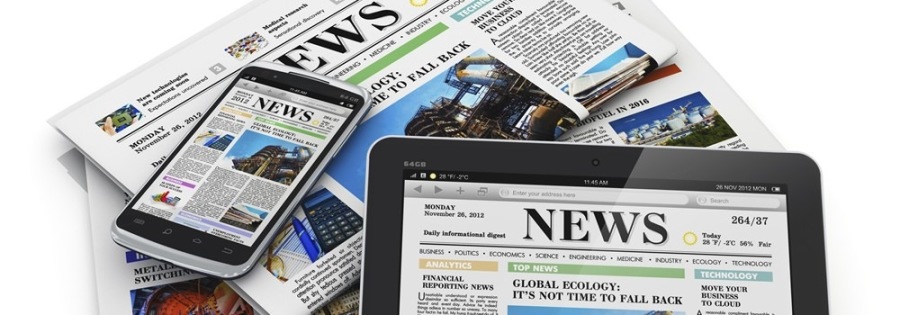
How do YOU consume news today?
Do you prefer traditional media (newspapers, TV and radio) to new media (digital and social), or perhaps a mix of both?
With perpetual hype surrounding the proliferation of social media, traditional media appears cast aside as the shunned stepchild in today’s fast evolving high-tech world of news consumption.
Yet despite a conspicuous shift in the media landscape caused by the 21st century Information Age, tens of millions of Americans still consume news that is originally reported and produced by traditional media — especially leading news outlets like the New York Times, Washington Post, Wall Street Journal, CNN, MSNBC, Fox and the national news networks (ABC, CBS, NBC).
Thus, while it remains important to focus on maximizing social media, today's public relations (PR) practitioners and professional communicators should also not forget about traditional news media (old media or legacy media) -- which still plays a vital and influential role in modern journalism, albeit on a diminished scale.
Digital News Transformation
Traditional media continues to transition and transform by leveraging digital, mobile and social media platforms to compete. Interestingly, many leading national newspapers, such as the New York Times, now have higher digital readership compared to hard copy editions. This is fast becoming the norm.
Many small to mid-sized print media outlets have been forced to close shop due to plummeting readership and revenue. Even influential national weekly magazines with once large print circulations have made the leap to digital only, including Time, Newsweek and National Journal (to name just a few). However, according to a recent Pew Research Center study on The Modern News Consumer:
"News remains an important part of public life."
- "More than seven-in-ten U.S. adults follow national and local news somewhat or very closely – 65% follow international news with the same regularity."
- "Fully 81% of Americans get at least some of this news through websites, apps or social networking sites..."
- "And, this digital news intake is increasingly mobile. Among those who get news both on desktop computers and mobile devices, more than half prefer mobile."
This trend toward digital media (new media) is not just happening in the professional world, but also on major college campuses nationwide. This is due to the ubiquitous digital presence of Millennials and Generation Z who are driven by mobile news consumption.
For example, the 106 year-old independent student newspaper at the University of Maryland recently switched from a daily print circulation to online news only -- actually, I think the print version is still published once a week. I worked at The Diamondback newspaper as a writer and editor as an undergrad some time ago. I also founded an online alumni group.
The Pew Research Center highlighted this trend in a 2014 report, State of the News Media:
“News is a part of the explosion of social media and mobile devices, and in a way that could offer opportunity to reach more people with news than ever before.”
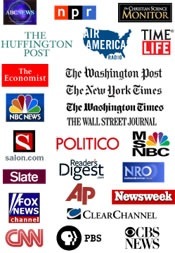
Despite the "Wild West" environment of online news, it's important to note that traditional journalism still supplies the bulk of legitimate and trusted news content, regardless of whether it's consumed through old media or new media.
Another recent Pew Study points out some interesting habits of today's so-called "very loyal news consumers" which appear to buck the digital trend:
- "Americans are split on whether they feel loyal to their news sources – but behaviorally, they tend to stick to the same sources anyway."
- "The very loyal follow news at much higher rates than others: 67% follow it all or most of the time, compared with 45% of the somewhat loyal and 32% of the non-loyal."
- "The very loyal are also more likely to trust national and local news organizations and think they do a good job informing people..."
- "And they are also heavily reliant on TV; 54% of very loyal news consumers prefer to get news from TV. No other platform comes close. Among the non-loyal, however, there is a much wider mix of preferred platforms including more weight towards digital sources when compared with the very loyal."
![TV dominates as preferred news platform among very loyal news consumers; wider
mix among the non-loyal
hoes seb toa
ie - ~~ a2
I] 5
oe — s](https://contents.bebee.com/users/id/10310319/article/why-old-media-still-matters-in-digital-age/f8207ff9.png)
New vs. Old Media
As the Pew reports point out, citizens are increasingly consuming traditional media via popular social, mobile and digital platforms. For example, while I still receive a hard copy edition of the Washington Post delivered each morning -- yes I'm a proud Gen Xer -- I consume most of my news via Twitter and other social platforms that link to traditional media outlets.
Moreover, many social media platforms have partnered with leading traditional media to offer legitimate news content -- as opposed to so-called "infotainment." A good example of this trend is Facebook Instant Articles, not to mention LinkedIn, Snapchat and other platforms that are republishing everything from Business Insider to Bloomberg News.
According to Pew, more Americans today are getting their news through social platforms:
- "A majority of U.S. adults – 62% – get news on social media, and 18% do so often, according to a new survey by Pew Research Center, conducted in association with the John S. and James L. Knight Foundation."
- "In 2012, based on a slightly different question, 49% of U.S. adults reported seeing news on social media."
- "Facebook is by far the largest social networking site, reaching 67% of U.S. adults."
- "The two-thirds of Facebook users who get news there, then, amount to 44% of the general population."
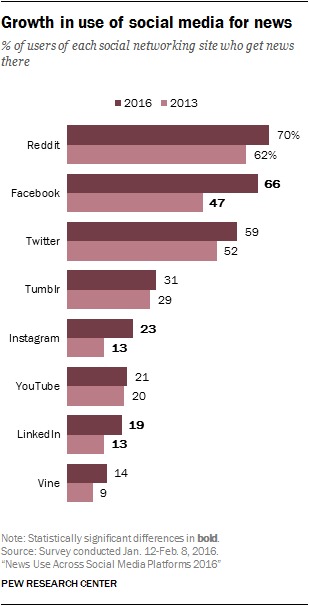
Meanwhile, old media, such as the once venerable New Orleans Times-Picayune, have transitioned to a 24/7 online presence only. The same news staff which once provided around the clock coverage of historic Hurricane Katrina has been slashed. The brick-and-mortar newsroom of the Pulitzer Prize winning print edition was shuttered in favor of a more nimble and streamlined virtual news environment.
Nevertheless, even as small and mid-sized newspapers die off, traditional media still accounts for a significant amount of news consumption by older Americans (Baby Boomers) and global audiences. This is especially true in less developed parts of the world that haven't come full circle into the Digital Age.
Those obtaining news on social platforms are still consuming some or most of that news from traditional media on those platforms.
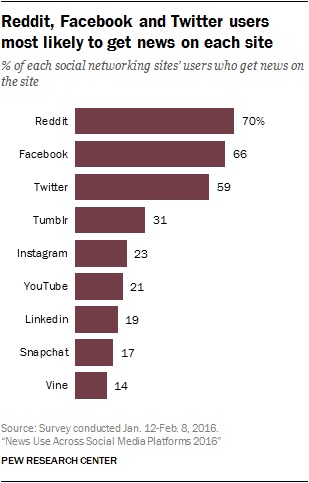
How people consume news today is a fluid and evolving process. That's why it's important for corporate communicators and PR pros to be mindful of the similarities and differences in news consumption on traditional media and new media, especially social media. These tectonic plates continue to overlap and shift, disrupting the core meaning of journalism as we know it. Meanwhile, those like me who work in strategic communications must adjust accordingly and try to stay ahead of the curve.
Millennials and Gen Z entering the fields of journalism, PR and media relations appear obsessed by social media alone, for better or worse. But regardless of this infatuation with social media, professional communicators of all generations should strike the appropriate balance of leveraging new media versus old media to maximize positive coverage and enhance their organization's brand image.
In essence, do YOU agree that traditional media still matters in today's mobile and digital world? What do YOU think and why?
DBG
You also might like:
- 3 Keys to Master Media Relations in Digital Age (April 16, 2016)
________________________________________________________________________________________

NOTE: All views and opinions are those of the author only and not official statements or endorsements of any public sector employer, private sector employer, organization or political entity.
""""""
Articles from David B. Grinberg
View blog
It’s important for today’s young people to recall the history of the civil rights movement in Ameri ...
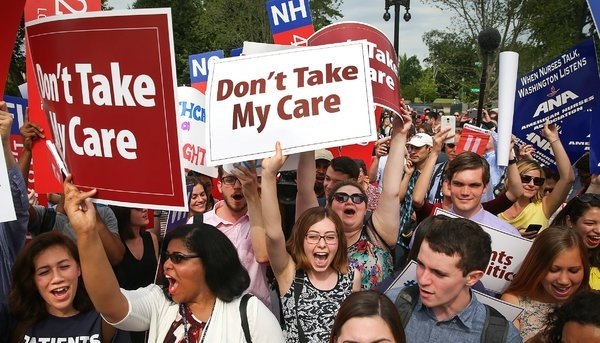
How much do Americans care about affordable healthcare? Just ask President Donald J. Trump and the R ...
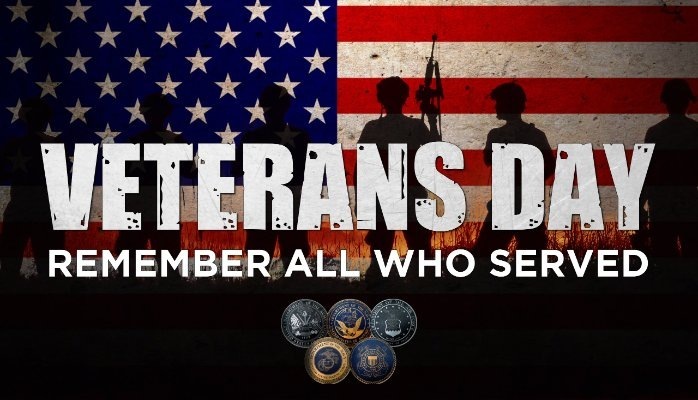
Something arguably unpatriotic has occurred mere miles from the nation’s capital this Veterans Day. ...
Related professionals
You may be interested in these jobs
-
Lifeguard
Found in: ZipRecruiter Test10S US C2 - 1 hour ago
Ladgov Corporation Buxton, United StatesJob Description · Job DescriptionLocation: Coquina Beach in South Nags Head, NC · Worksite: On-site · Position: Full-time · Duties: · The Lifeguard shall:Monitor beach areas for safety. · Perform water rescues and administer first aid. · Post surf condition flags. · Respond to e ...
-
REACH Program Coordinator
Found in: Lensa US 4 C2 - 4 days ago
Georgia Department of Public Health New York, United StatesFounded in the 1920s and headquartered in Decatur, GA, DeKalb Public Health (DKPH) works to protect, promote and improve the health and well-being of all DeKalb County residents. · Our vision is for a healthier DeKalb where all residents have equitable access to public health re ...
-
RN Hospital Liaison
Found in: Lensa US 4 C2 - 4 days ago
Hospice & Palliative Care of Greensboro Burlington, United States· Finally, the job you have been looking for · AuthoraCare Collective is currently seeking an RNHospital Liaison . This is a full-time (40 hours per week) position with week-end responsibility/rotation supporting our Greensboro and Burlington campuses/service areas. · Job Summ ...



Comments
David B. Grinberg
7 years ago #10
Many thanks Claire \ud83d\udc1d Cardwell for sharing your valuable feedback and important insights. I also appreciate the tweets. You're awesome!
David B. Grinberg
7 years ago #9
David B. Grinberg
7 years ago #8
Thank YOU, Debasish, for your kind words and share on Twitter. I'm grateful for your positive social media engagement and gracious support. I appreciate YOU, kind sir!
David B. Grinberg
7 years ago #7
Chas, Many thanks for sharing your valuable feedback. I think this comes down to beauty being in the eyes of the beholder. It seems as if peoples news consuming habits evolve as technology and social media habits evolve. I think evolution is a good thing. Thanks again for your excellent comments.🙏✌️️
David B. Grinberg
7 years ago #6
David B. Grinberg
7 years ago #5
CityVP Manjit
7 years ago #4
Virag🐝 G.
7 years ago #3
Virag🐝 G.
7 years ago #2
David B. Grinberg
7 years ago #1